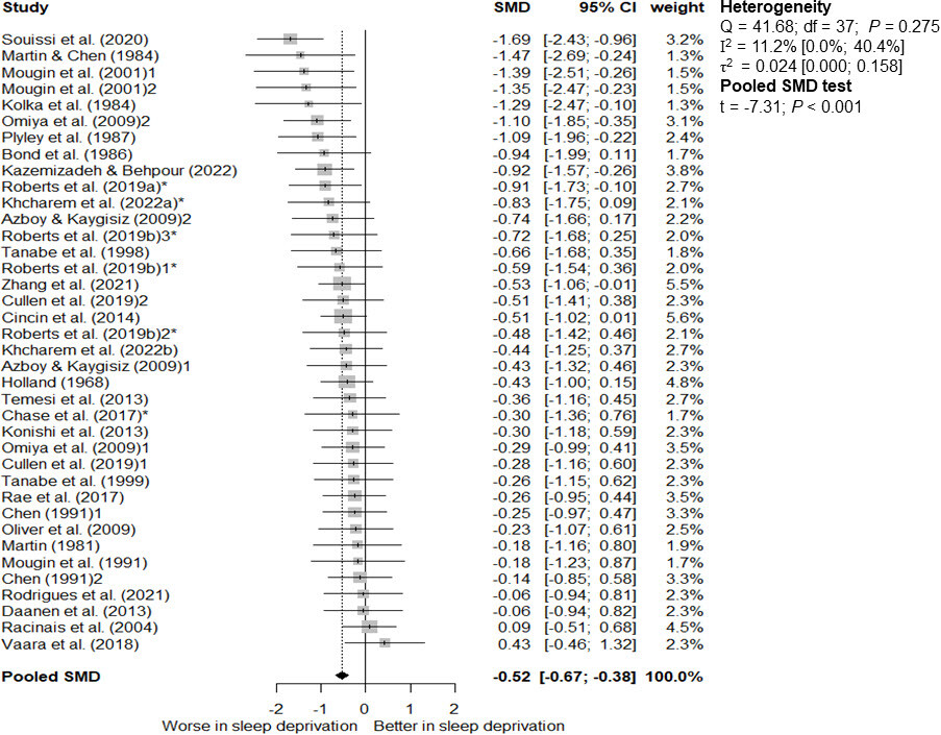Sleep Deprivation and Endurance Performance
by Doug Stewart
A recently published systematic review and meta-analysis explored the impact of sleep deprivation on endurance performance. The review focussed on trials that compared sleep deprivation and regular sleep patterns on endurance performance in healthy individuals.
A total of 31 studies met the inclusion criteria, with a total of 478 subjects. Overall, at the highest level, the results showed that sleep deprivation had a negative impact on endurance performance, with only a couple of studies suggesting an improvement, as can be seen below:
Forest plot showing the effect of sleep deprivation versus normal sleep on endurance performance. Source: Lopes at al., 2022
The review shows a moderate impairment on the performance of the subjects, which one may expect with sleep deprivation, but drilling into it a stage further revealed some interesting findings. First off, the studies included in the review had a number of different endurance activities (e.g. walking, running and cycling) and, regardless of activity type, this did not have an impact on the extent of the sleep deprivation effect on performance. So, it appears that, for varying endurance activities, sleep deprivation impacted them all similarly.
Secondly, the type of testing used in the research was equally impacted by sleep deprivation. Whether with a known end point working to a set time such as a time trial, or an unknown endpoint, such as a ramp test or maintaining a constant load for a long as possible, the impact of sleep deprivation remained similar.
However, when the exercise went on for longer than 30 minutes, it appeared that sleep deprivation had a greater impact on performance (i.e. performance decreased more). Interestingly though, there were similar detrimental impacts if the subjects had one night of complete deprivation or several nights of partial sleep deprivation. This means that a cumulative sleep deprivation was as detrimental to performance as a complete night of no sleep.
There are some important points to highlight though. The level of the subjects used (in terms of fitness) was untrained, recreationally-trained and trained. They all appeared to be impacted to a similar level. However, there were no well-training or professional endurance athletes included, so the impact is unknown amongst these groups.
However, it appears that if doing endurance exercise, regardless of activity type, sleep deprivation will have a moderate negative impact on your performance. This will become more pronounced if the exercise is longer than 30 minutes in duration. Food for thought for those doing longer endurance events through multiple nights.
References:
Lopes, T. R., Pereira, H. M., Bittencourt, L. R. A., & Silva, B. M. (2022). How Much Does Sleep Deprivation Impair Endurance Performance? A Systematic Review and Meta-analysis. European Journal of Sport Science, (just-accepted), 1-46.


